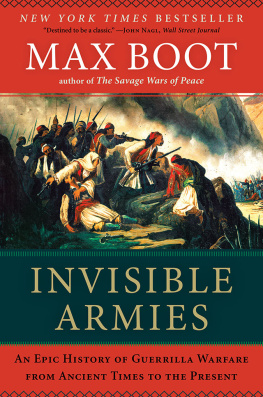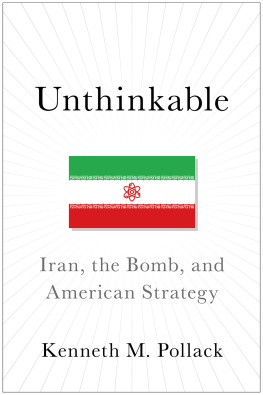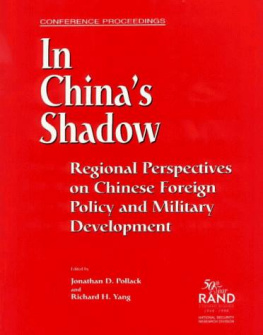Pollack - Armies of sand: the past, present, and future of Arab military effectiveness
Here you can read online Pollack - Armies of sand: the past, present, and future of Arab military effectiveness full text of the book (entire story) in english for free. Download pdf and epub, get meaning, cover and reviews about this ebook. City: Arabische Staaten, year: 2019;2018, publisher: Oxford University Press, genre: History. Description of the work, (preface) as well as reviews are available. Best literature library LitArk.com created for fans of good reading and offers a wide selection of genres:
Romance novel
Science fiction
Adventure
Detective
Science
History
Home and family
Prose
Art
Politics
Computer
Non-fiction
Religion
Business
Children
Humor
Choose a favorite category and find really read worthwhile books. Enjoy immersion in the world of imagination, feel the emotions of the characters or learn something new for yourself, make an fascinating discovery.
Armies of sand: the past, present, and future of Arab military effectiveness: summary, description and annotation
We offer to read an annotation, description, summary or preface (depends on what the author of the book "Armies of sand: the past, present, and future of Arab military effectiveness" wrote himself). If you haven't found the necessary information about the book — write in the comments, we will try to find it.
Armies of sand: the past, present, and future of Arab military effectiveness — read online for free the complete book (whole text) full work
Below is the text of the book, divided by pages. System saving the place of the last page read, allows you to conveniently read the book "Armies of sand: the past, present, and future of Arab military effectiveness" online for free, without having to search again every time where you left off. Put a bookmark, and you can go to the page where you finished reading at any time.
Font size:
Interval:
Bookmark:
KENNETH M. POLLACK


Oxford University Press is a department of the University of Oxford. It furthers the Universitys objective of excellence in research, scholarship, and education by publishing worldwide. Oxford is a registered trade mark of Oxford University Press in the UK and certain other countries.
Published in the United States of America by Oxford University Press
198 Madison Avenue, New York, NY 10016, United States of America.
Kenneth M. Pollack 2019
All rights reserved. No part of this publication may be reproduced, stored in a retrieval system, or transmitted, in any form or by any means, without the prior permission in writing of Oxford University Press, or as expressly permitted by law, by license, or under terms agreed with the appropriate reproduction rights organization. Inquiries concerning reproduction outside the scope of the above should be sent to the Rights Department, Oxford University Press, at the address above.
You must not circulate this work in any other form
and you must impose this same condition on any acquirer.
Library of Congress Cataloging-in-Publication Data
Names: Pollack, Kenneth M. (Kenneth Michael), 1966 author.
Title: Armies of sand : the past, present, and future of Arab military effectiveness / Kenneth M. Pollack.
Description: New York, NY, United States of America : Oxford University Press, 2019. | Includes bibliographical references.
Identifiers: LCCN 2018012932 | ISBN 9780190906962 (hard cover) | ISBN 9780190906986 (epub)
Subjects: LCSH: Arab countriesArmed ForcesHistory. | Military art and scienceArab countriesHistory. | Military art and scienceSoviet UnionHistory. | Arab countriesMilitary policy. | Economic developmentArab countries.
Classification: LCC UA854.P654 2019 | DDC 355.00917/492709045dc23
LC record available at https://lccn.loc.gov/2018012932
For my remarkable professors,
Paul Bracken, Paul Kennedy, and the late Brad Westerfield
In gratitude for their wisdom and guidance
W HATS WRONG WITH the Arab armies? Why do they lose so many wars that by all rights they should win? And why is it that when they do win, their victories tend to be so modest, if not outright pyrrhic? Why have the Arabs lost to Israel time and again? Why did it take Iraq eight long years to defeat an Iran wracked by revolution and cut off from the rest of the world? Why was that same Iraqi army then crushed effortlessly by the US-led Coalition in the Persian Gulf War of 1991? How on earth did the Libyans manage to lose to Chad in 1987? Chad! And the Libyans werent just beaten, they were routed. Why did the Iraqi army collapse under ISIS attack in 2014? And why was it so hard for Iraq to drive ISIS out of their country despite massive American air power and the assistance of 62 other countries?
Those are the questions at the heart of this book.
Its a critical issue for the Middle East and for the United States. The puzzling weakness of the Arab armed forces has driven the military balance in the Middle East since the Second World War. Every other aspect of the international relations of the region rests on this balance. The smart Arab leaders learned over time that military solutions just werent a viable option for them in their dealings with other countries. Conventional force was effectively removed from their foreign policy toolkits.
In some ways, that has been good for the United States. It has meant that the existence of Israelour principal ally in the Middle East since the early 1970shas been assured. The Arabs just dont have a realistic military option against the Jewish state. It also allowed us to win a spectacular and virtually bloodless victory over Saddam Husayn in the Persian Gulf War and to prevent many other regional wars with only a small military presence.
But it has been problematic in other ways. Saddam is only one example of an Arab leader who did not understand the weakness of his armies and so embarked on wars that he had no business fighting. That may be fine when it is one of our enemies. The problem is when it is one of our allies, like the Saudis, who in 2015 plunged into the Yemeni Civil War in a way they never should have because they lacked the capacity to win it quickly or decisively.
Since the late 1970s, the United States has been trying to build up various Arab armies because the stronger they are, the more likely they can deter threats against themselves, and the less likely it is that the United States would have to fight on their behalf. So we have been trying to strengthen the Egyptian, Jordanian, Moroccan, Saudi, Emirati, Qatari, Bahraini, Kuwaiti, Omani, and Iraqi armed forces. Yet, as the Saudi debacle in Yemen in 2015 and the collapse of the Iraqi security forces under ISIS attack in 2014 have demonstrated, their weaknesses have typically defied our efforts to strengthen them. And when they fail, we find ourselves forced to intervene to shore them up or fight their wars for them.
Of course, there are some Arab militaries that have demonstrated a better ability to fight. The problem is that today these are the biggest troublemakers in the region. Hizballah, ISIS, al-Qaida, Jabhat Fatah ash-Sham (the former Nusra Front), and a variety of other vicious, Islamist militiasboth Shia and Sunnihave proven more able in battle than most of the armed forces of the Arab states. That too is a big problem for the United States since all of these groups see the United States as one of their primary enemies and all of them are actively fighting American allies. Understanding why these nonstate militaries have proven more effective than the state armies we have been trying so hard to improve is more than just an intriguing mystery, it is a vital national interest.
My hope is that this book will help answer all of these questions. More than that, I hope that it will provide some sense of the changes going on in the Middle East, because they are profound and they could transform the long-standing balance of power over the next several decades.
Finally, I hope that this book will shed more light on the broader question of how different societies generate military power and why some countries are so much more powerful than others, often in ways that seem to defy simple tallies of population and resources. The history of the world has been shaped by military outcomes that defied predictions based on simple material assumptions about what constituted military strength. The reality is that wars are far more often decided by the abilities of the combatants and that, in turn, is typically an outgrowth of the societies themselves. So to really understand the sources of military power, we often need to understand the societal factors that drive them. Doing so for the Arabs during the modern era is the goal of this book.
I N MANY WAYS I have been writing this book for nearly 30 years. When I was a young military analyst at CIA, right after I had written the first draft of the post-mortem on the Iraqi armed forces during the Persian Gulf War, I had to clear on a report written by one of my colleagues on the Syrian military. In reading through it, I was struck by how the Syrians had all of the same problems with military effectiveness that had hobbled the Iraqis during the Iran-Iraq and Gulf wars. I began to wonder why that was. Because of their similarly dictatorial systems? Because they were both Arab countries? Because they had some degree of Soviet tutoring (although the Iraqis had
Font size:
Interval:
Bookmark:
Similar books «Armies of sand: the past, present, and future of Arab military effectiveness»
Look at similar books to Armies of sand: the past, present, and future of Arab military effectiveness. We have selected literature similar in name and meaning in the hope of providing readers with more options to find new, interesting, not yet read works.
Discussion, reviews of the book Armies of sand: the past, present, and future of Arab military effectiveness and just readers' own opinions. Leave your comments, write what you think about the work, its meaning or the main characters. Specify what exactly you liked and what you didn't like, and why you think so.


















